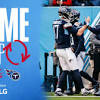Yom Kippur starts Friday at sundown. Here's what to know about the ...


Jewish Holidays: Rosh Hashanah, Yom Kippur, Passover, and Hanukkah
Discover the significance and traditions of four major Jewish holidays: Rosh Hashanah, Yom Kippur, Passover, and Hanukkah.
Yom Kippur, the holiest day of the year in Judaism, begins at sundown on Friday.
The purpose of Yom Kippur, also known as the Day of Atonement, is to practice forgiving others and repentance for one’s sins against God. Yom Kippur concludes the “10 days of repentance” that began on Oct. 2 with Rosh Hashanah, the Jewish New Year.
Many Jewish people will attend services at synagogues or other congregations, reciting prayers and singing special songs. It is common for people to fast for 25 hours, not eating or drinking from the night Yom Kippur begins until the night it ends.
Here's what to know about Yom Kippur, including how it is celebrated, traditions around the holiday and common greetings.
What are common traditions during Yom Kippur?
Many Jewish families and communities will gather before Yom Kippur begins and after it ends to share festive meals to prepare for the beginning of their fast and break their fasts together.
Another important observance is the blowing of the shofar, or a curved ram’s horn. The shofar is sounded ceremonially to conclude Yom Kippur.
What do you say to someone on Yom Kippur?
"G’mar chatima tova” is the customary greeting on Yom Kippur. In English, it means “May you be sealed in the Book of Life.”
According to Jewish tradition, one's fate is decided on Rosh Hashanah and sealed on Yom Kippur.
When does Yom Kippur end?
Yom Kippur ends at nightfall on Monday, Oct. 12, 2024. It lasts one day.


 United States
United States Argentina
Argentina  Australia
Australia  Austria
Austria  Brazil
Brazil  Canada
Canada  Chile
Chile  Czechia
Czechia  France
France  Germany
Germany  Greece
Greece  Italy
Italy  Mexico
Mexico  New Zealand
New Zealand  Nigeria
Nigeria  Norway
Norway  Poland
Poland  Portugal
Portugal  Sweden
Sweden  Switzerland
Switzerland  United Kingdom
United Kingdom 
























